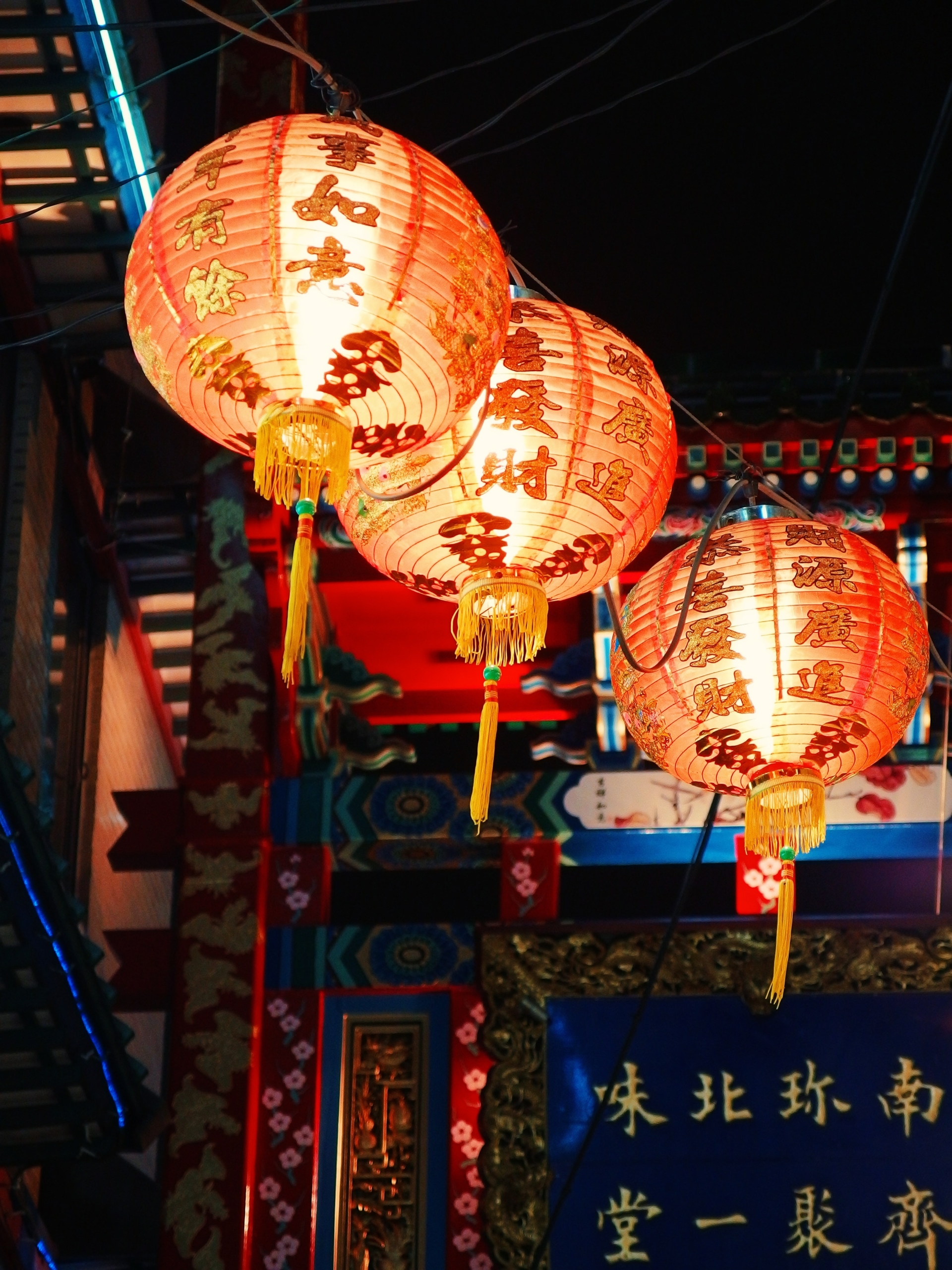Someone who has gone down the rabbit hole of attempting to learn one of the most widely spoken but most difficult languages in the world, knows how interesting its encounter with other cultures can be. Try traveling to China as a Westerner without having strangers taking pictures with you, for example, or paying the bill at a restaurant without getting into a fight with half of your dinner companions. Chinese people cherish their traditions and customs particularly well, and remember their grandiose history with great pride, one key part of their cultural heritage being their language. Mandarin Chinese does not let go of its own distinctive writing system which can be presented as a never-ending list of characters (at least it seems so) with one or more syllabic pronunciations. This, however, is a bit tricky to understand for Westerners, let alone navigating their way through English terms converted into Chinese characters which seem obvious enough for native speakers. But the same confusion occurs in the case of Chinese people as well, since they also have difficulty adapting to the Latin alphabet at first. In this article, we will look at this topic from both perspectives, in order to introduce strategies for transcribing Chinese names into English and the other way around.
Foreign Names in Chinese
When we are talking about converting Chinese names into English, or vice versa, we mean the transcription of names from one alphabet to another according to sound. Transcription from English into Chinese means the use of characters to phonetically write down foreign words and names. Foreigners can get an idea about the pronunciation of Chinese characters by looking at their so-called pinyin form, which is a writing system that uses the letters of the Latin alphabet with special accents on them marking the tones of the given words. Look at the following example:
Anna – 安娜 (Ānnà)
The name Anna is transcribed into Chinese characters which are pronounced almost the same as the original term, but, Chinese being a tonal language, the term also gains a specific melody, marked by the diacritics on top of the pinyin form between brackets. These three forms of one word occur in the case of all the terms that one wants to learn in Chinese, but personal names are much easier to remember, since they are only transcribed, and rarely have a distinctive meaning. This is because many characters are reserved only to transcribe foreign names and are not used for anything else. If your name is relatively common or has an English equivalent, it’s more than probable that you can find its Chinese version as well. There are several names that have their own pre-established transcription in Chinese according to their sound and are thus recurring in all the textbooks for studying the language, for example:
Lisa – 丽莎 (Lìshā)
Mary – 玛丽 (Mălì)
David – 大卫 (Dàwèi)
Jake – 杰克 (Jiékè)
Most of the transcriptions are formed this way. Those who are familiar with the language take characters used in names and piece together a collection of these in order to make the term sound like the original one. There are, however, some lucky accidents or deliberate artistic expressions resulting in a transcription mirroring the original meaning of the name, or even more exciting, a phono-semantic matching where both aspects are paid attention to. One such example of personal names with explanation is:
Alice – 爱丽丝 (Àilìsī)
爱 = love
丽 = beauty
丝 = silk
Besides personal names, we have terms in Chinese for places as well. These are formed following the same principles, either according to sound, meaning, or both. Let’s see examples for all three:
Sound:
Canada – 加拿大 (Jiānádà)
Romania – 罗马尼亚 (Luómǎníyǎ)
Portugal – 葡萄牙 (Pútáoyá)
Meaning:
Oxford – 牛津 (Niújīn)
The name Oxford literally points to a place where cattle can cross a river. The Chinese term has exactly the same meaning.
Sound & meaning:
Hyde Park 海德公园 (Hăidé Gōngyuán)
The first two characters from this name mean “sea” and “virtue”, respectively, while the last two simply mean “park” in Chinese.
The Chinese Having Fun
We’ve seen how easy it is for Chinese people to transcribe English names into characters. Sometimes they take this opportunity to create intriguing names for celebrities, just because they can. These celebrity nicknames can be funny to look into and translate, check out a few of them here:
Leonardo DiCaprio – 小李子 (Xiǎo Lǐzǐ)
The actor’s Chinese nickname can be considered very cute (cuter than some of the examples that follow). It can literally be translated to “little plum” which has a very nice connotation in Chinese culture, since plum symbolizes perseverance and hope. The name 李子 also represents the name Leo, and 小 is generally put before names to express affection.
Bryan Cranston – 老白 (Lǎobái)
Bryan Cranston is the actor playing the role of the protagonist in the famous TV series, Breaking Bad. The name of his character is Walter White, and this became the basis of his Chinese nickname as well. It means “old white” in Chinese, where 老 can also signify respect while 白 refers to the name of the famous chemistry teacher turned criminal.
Benedict Cumberbatch – 卷福 (Juǎnfú)
Another actor marked by one of his significant roles is Benedict Cumberbatch. This name means “curly fortune”, where 卷 points towards his looks while 福 derives from the Chinese name of the all-time famous character played by him in one of the movie adaptations of Sherlock Holmes (福尔摩斯).
The Weeknd – 盆栽哥 (Pénzāigē)
The singer under the pseudonym The Weeknd had a significant hairstyle which reminded his Chinese fans of a bonsai tree. This is how he got the nickname meaning “bonsai brother”, which hasn’t changed after he decided to change his looks.
Calvin Harris – 高富帅 (Gāofùshuài)
Calvin Harris cannot complain about his cool Chinese nickname at all. The characters of 高富帅 literally mean “tall”, “rich” and “handsome”, in this order. This term can also be used with the meaning of Mr. Perfect in Chinese online slang.
Katy Perry – 水果姐 (Shuǐguǒjiě)
Katy Perry’s Chinese nickname means “fruit sister”. This is most probably due to her extensive list of music videos and costumes containing fruits and food in general. By this time you’ve probably noticed how freely Chinese people call anyone “sister” or “brother”. This is because in many cases, these attributes show familiarity and affection towards people, just like 小, meaning “small”.
Lady Gaga -康敏苏 (Kāngmǐnsū)
Lastly, let us mention Lady Gaga’s Chinese nickname, which might be the “cruelest” of them all. If you look closely, its pronunciation is similar to the English expression “coming soon”. This is a deliberate choice from fans anxious about the singer’s new music that they consider always arriving too slowly.
Chinese Names in English
Choosing a Chinese name might be helpful when traveling to China, starting to study the language or making new Chinese friends. The same thing goes for Chinese people interested in Western countries where English is widely used. Believe it or not, it’s not easier for them to choose the right name than for English-speakers to understand their system of writing.
There are a few names more commonly chosen by the Chinese when they decide to move or travel to another country. The majority of these are chosen because they are made out of two syllables and sound the same as Chinese names, just like Andy, Amy or Jenny. This is why they will often choose a name considered an abbreviation in general: for them, Western nicknames sound more natural than long, complicated names.
One important fact about Chinese names is, that they are chosen with great care and paying attention not only to the meaning and sound of a certain character that the name is made out of, but also of aspects such as the Chinese horoscope and the number of strokes used to write the name. It’s thus obvious that Western names seem rather superficial for a native Chinese speaker who can probably explain the meaning of their names in fine details as opposed to a Westerner. Knowing this, they usually don’t bother translating their names into English, but they might want to use the strategies adopted by the other group when choosing majestic characters and select random words that they find beautiful in English for their name. This results in names such as Candy, Apple or Happy that might sound hilarious to foreigners despite the intention.
Many Chinese people use one of the few transcription methods to write their name and then trust people enough to let them pronounce it. Sometimes it’s easier, sometimes it’s a challenge, but this is the case with other languages as well, so nobody should be scared to try. For example, a famous Chinese writer’s name is transcribed as Li Bai which is perfectly accessible for anyone to say but maybe not everyone can figure out at first how to pronounce Sūnzǐ, the pinyin transcription of the name more commonly known as Sun Tzu in English, the author of The Art of War. Also, do you know who Fang Shilong is? You do, you just don’t know him by this name, and instead have heard of the one he chose to be more memorable for his foreign fans, which is Jackie Chan.
It’s always interesting to deconstruct the border between different languages and cultures, and we hope it has been so for you as well, while reading this article. In the future we might bring you a guide about how to choose your own Chinese name, who knows…











